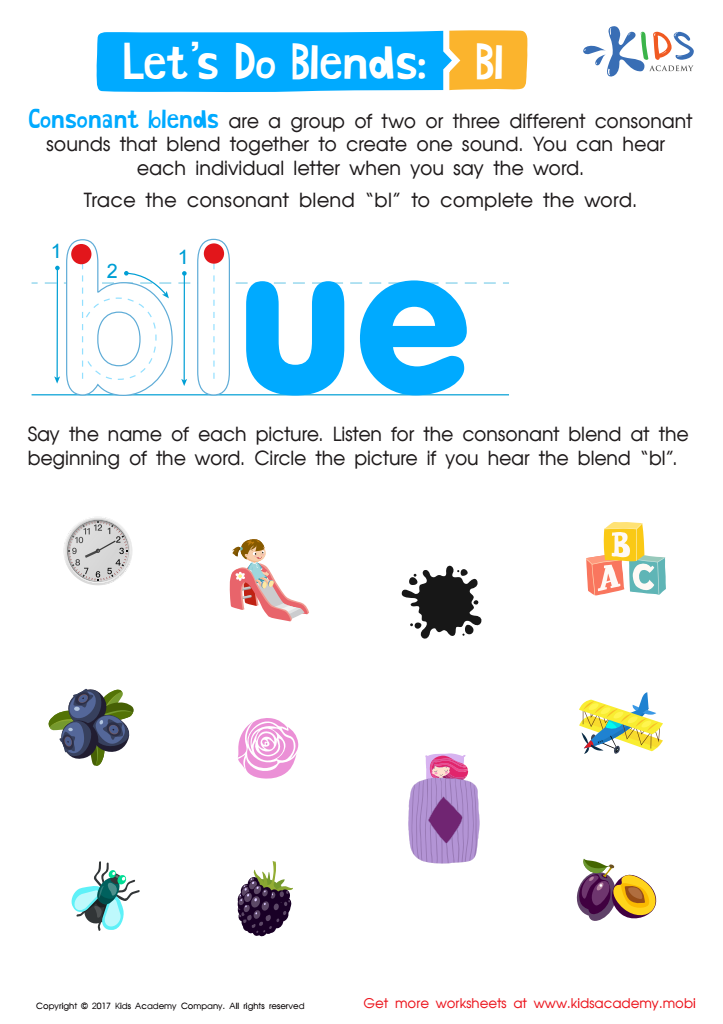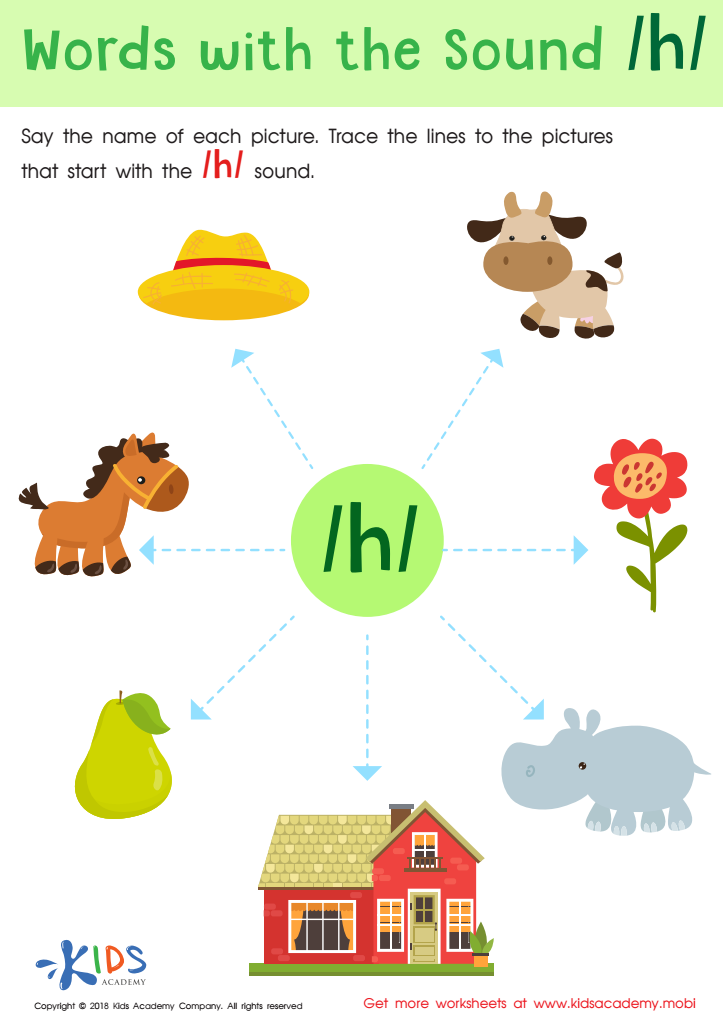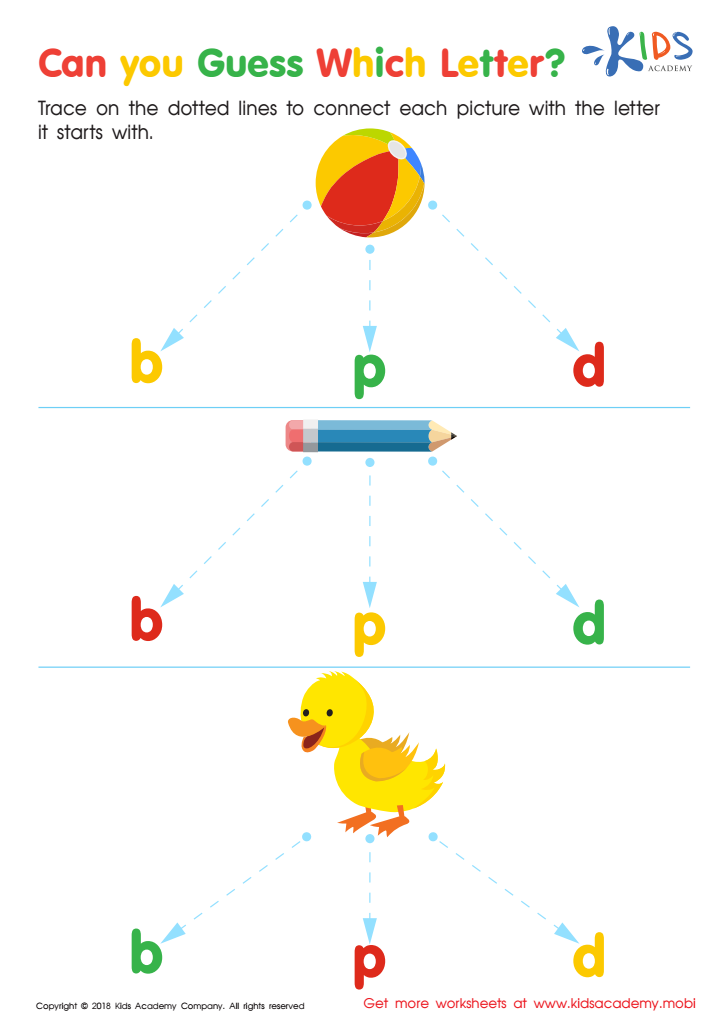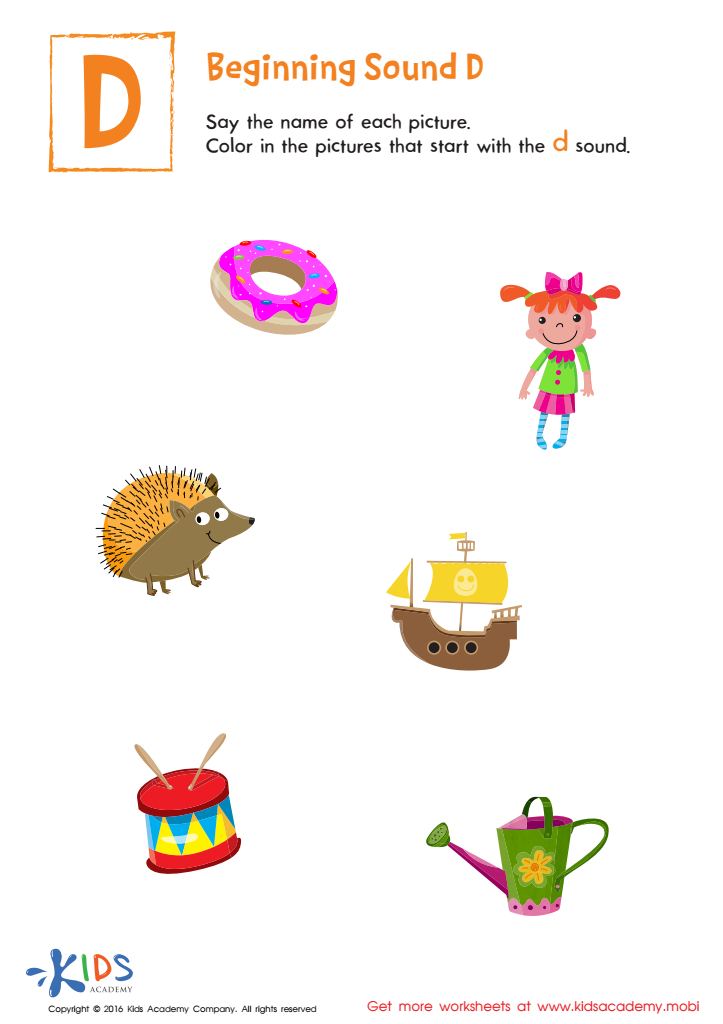Vocabulary expansion Normal Beginning Sounds Worksheets for Ages 3-9
5 filtered results
-
From - To
Discover our engaging Vocabulary Expansion Normal Beginning Sounds Worksheets designed specifically for children ages 3 to 9. These worksheets help young learners enhance their vocabulary while mastering the critical skill of recognizing beginning sounds in words. With fun illustrations and interactive activities, children will explore phonics through various themed worksheets that make learning enjoyable and effective. Ideal for early childhood classrooms or homeschool settings, our resources foster language development and boost reading readiness. Let your child embark on a vocabulary-building adventure today, reinforcing foundational literacy skills that will serve them well for years to come. Start teaching and watch them thrive!


Beginning Blends: "Bl" Words Worksheet


Words with sound h Reading Worksheet


Can you Guess Which Letter? Worksheet


Words with sound f Reading Worksheet


Beginning Sound D Worksheet
Vocabulary expansion is crucial for children's language development, particularly for ages 3-9, as it lays the foundation for effective communication and literacy skills. During these formative years, children are at an optimal stage for absorbing new words and sounds, which directly influences their reading and comprehension abilities later on.
Focusing on normal beginning sounds – like the "b" in "bat" or the "c" in "cat" – helps children recognize phonetic patterns and builds their phonological awareness. This skill is essential for decoding new words when they start reading, ultimately contributing to their reading fluency and confidence.
Moreover, a robust vocabulary enables children to express themselves more clearly and engage in meaningful conversations, enhancing their social interactions and emotional intelligence. It can also influence academic success across various subjects, as a rich vocabulary allows students to grasp concepts more readily.
Therefore, parents and teachers should actively participate in activities that promote vocabulary expansion, such as reading, singing, and simple phonics exercises. By nurturing a child's language skills, adults can create a supportive learning environment that fosters lifelong literacy habits and encourages a love for learning.
 Assign to My Students
Assign to My Students














